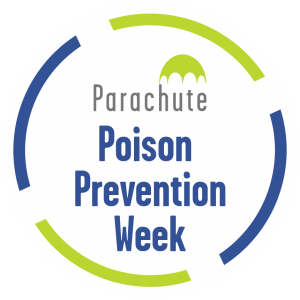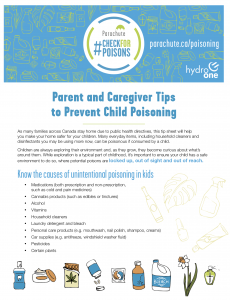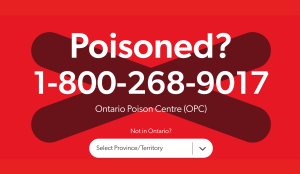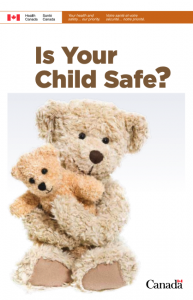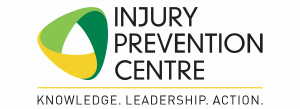
National Poison Prevention Week is an annual campaign to raise public awareness of poisoning injuries in Canada, encouraging community involvement as part of the solution.
Each year, more than 5,000 people in Canada lose their lives due to poisoning and annual unintentional poisoning deaths have surpassed transport-related deaths in Canada.
For 2026, the campaign will encourage people in Canada to #RethinkPoisons and use over-the-counter medications and natural health products safely. The goal of the campaign will be to empower people in Canada to talk to their doctor or pharmacist about medications and natural health products, read labels carefully and use products safely.
Medications can help when used safely
It is easy to find over-the-counter medications in stores, online and at home. They are safe for most people if you use them in the right ways but there are dangers if you don’t use them safely.
Medications are the leading cause of poisoning in Canada
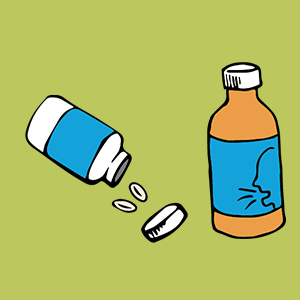
This includes prescription medications, over-the-counter medications and natural health products. Each year, pain medications are the No. 1 substance people call poison centres about. Poison centres in Canada receive about 100 calls a day about pain medications.
Over-the-counter medication is medication you can buy without a prescription from a doctor. One example is medication that helps with pain, such as acetaminophen. Another example is cough syrup.
Natural health products are often made from plants but can also be made from minerals or other natural things. Vitamins and traditional medicines are examples. Natural health products can come in many forms such as tablets, capsules, creams, ointments and drops.
Take action to prevent poisoning
Knowing how to use and store prescription medications, over-the-counter medications and natural health products safely can prevent poison-related injuries and harm for you and your family.
Take and give medication, including over-the-counter and natural health products, safely
- Always read the label and instructions for use before giving or taking medication. The label tells you how, when and who should take the medication. It also has important warnings and precautions.
- Read and follow the dosage. Medications do not work better by taking more than the recommended dose. They work best when you take the correct dose.
- Pay attention to all dosage instructions. Read how much medication you can take at once, how often to take it, and how much you can take in 24 hours.
- Talk to your doctor or pharmacist if you have any questions about medications or natural health products, such as proper dosages or side effects.
- Mixing medications and other substances can be dangerous. Talk to your doctor or pharmacist before you use a new medication or natural health product. This includes vitamins and supplements.
- Mixing alcohol and/or cannabis with medications can have dangerous effects. Ask your pharmacist about any effects alcohol and/or cannabis may have on the medications or natural health products you take.
- Many over-the-counter products have acetaminophen along with other ingredients. Check labels and do not use more than one product with acetaminophen in it at the same time, unless your doctor or pharmacist has told you to do so.
When picking up or buying medication
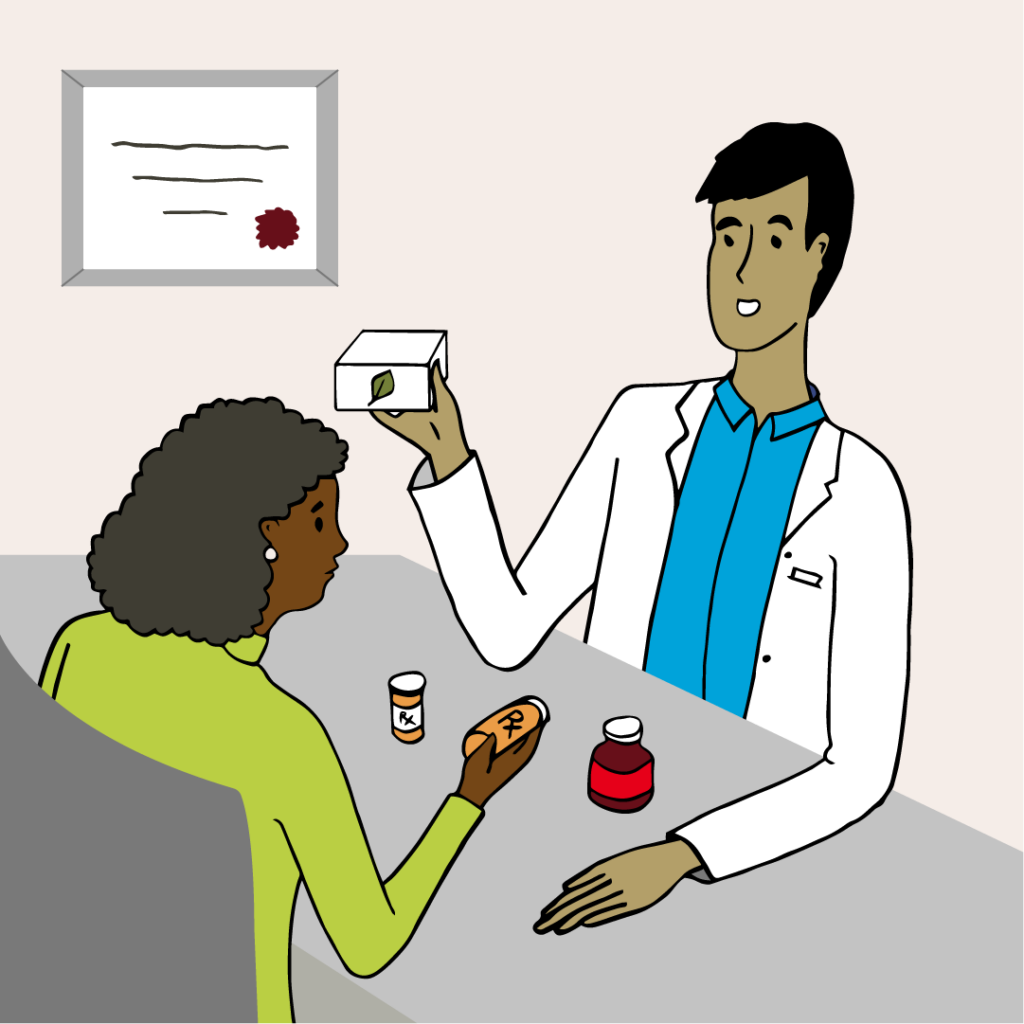
- Talk to your pharmacist. They can help you use prescriptions, over-the-counter medications and natural health products safely.
- Inform your pharmacist about any medication conditions you have or have had as well as all medications (including vitamins and supplements) you are taking and exactly how you take them.
- Tell your pharmacist about any changes to your medications, as well as anything that could impact your use of the medication, such as issues distinguishing between medications or taking the correct dosage.
- Pay attention to packaging. Choose products with child-resistant packaging and buy smaller packages instead of bigger ones. Having less medication at home can help prevent misuse and abuse.
Store medications safely away after use
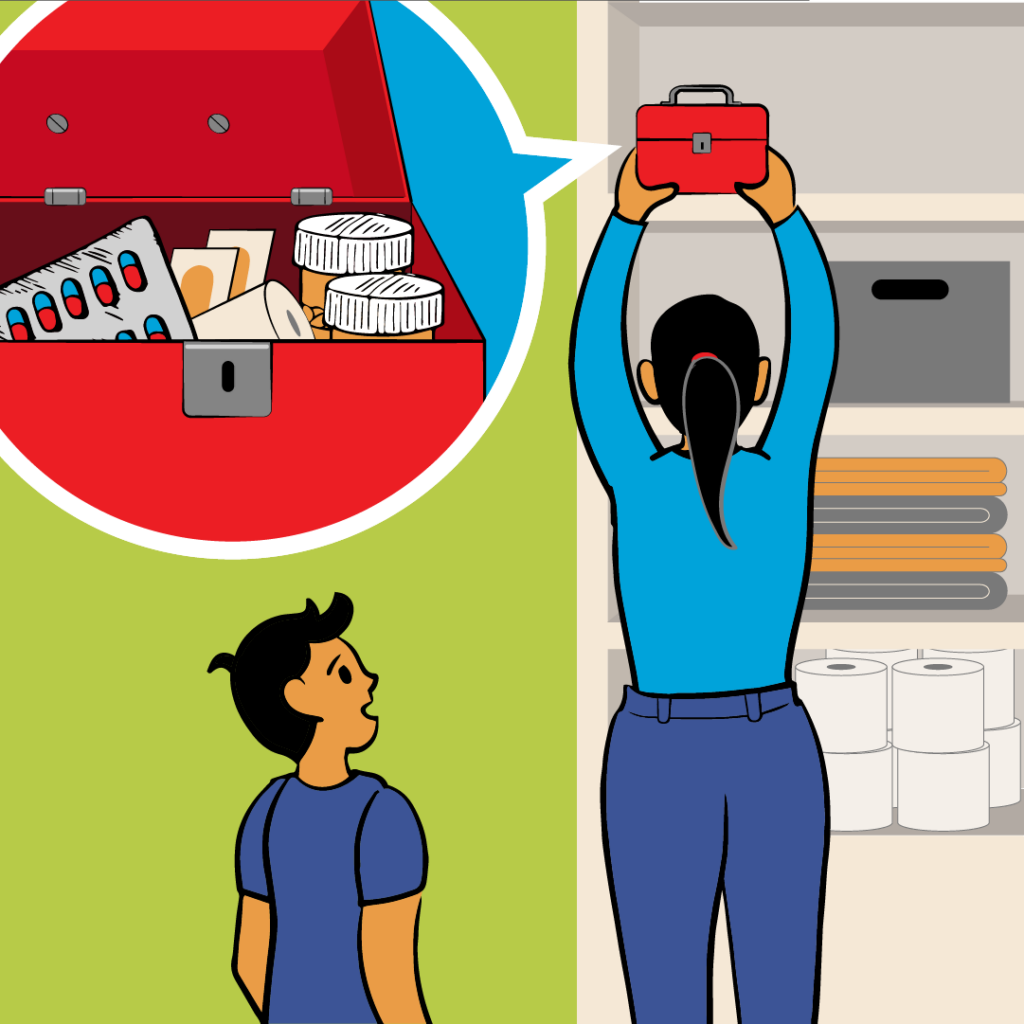
- Store over-the-counter medications and products safely away, just like prescriptions, after every use.
- Storing medications and products safely means locking them away, up high and out of reach. Medication lock bags or boxes can be used to securely store medications.
- Return expired and unused prescription and over-the-counter medications and natural health products to your pharmacy or through your local unwanted medications take-back program.
Know what to do in case of a poisoning
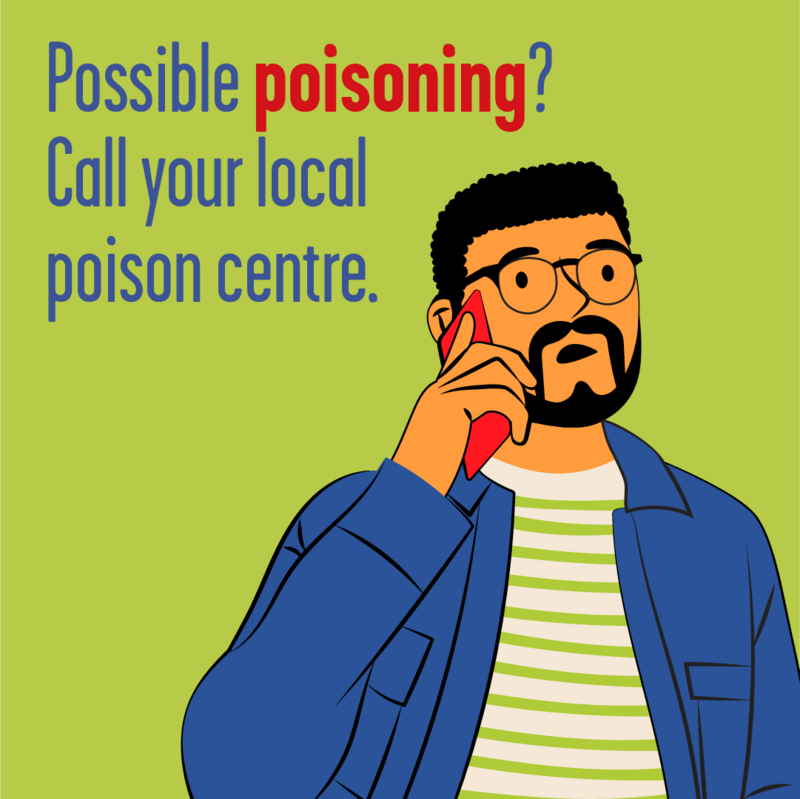
Have an action plan in place to help you and your family respond quickly in the event of a poisoning (for example, if someone has taken too much of a prescription medication, over-the-counter medication or natural health product). If you suspect a poisoning, call your local poison centre.
Poison centres are a free phone service you can call. They are available 24/7 and have healthcare providers with special training in the effects of poison. Poison centres give advice to people of all ages who may have been exposed to a poison.
Possible poisoning? Call your local poison centre.
Canada has a toll-free 24/7 number for poison centres. If you suspect a poisoning, call 1-844-POISON-X (1-844-764-7669).
If you are located in Nunavut, contact your local health centre. If you are located in Québec, call 1-800-463-5060.
Keep the number of your poison centre nearby or in your phone. Program the number into your phone’s contact list or keep it in a visible location, such as on your fridge.
If the person loses consciousness, has difficulty breathing or is having a seizure, call 911.
Support is available
There are many resources available if you or someone you know is in crisis and in need of support. Call your local poison centre if you suspect self-harm by poisoning.
If you or someone you know:
- Requires urgent medical care, call 9-1-1.
- Is thinking about suicide, call or text 9-8-8. In Québec, call 1-866-APPELLE. Support is available 24 hours a day, seven days a week.
- Is looking for substance use support, find Canada-wide and regional support services.
Report medication concerns: Help create a safer Canada
Everyone can help by reporting unsafe products and issues with medications.
- Report your experience with or concerns about a product to Health Canada to help identify risks to people’s health and safety.
- Play a vital role in reducing medication incidents by reporting them. A medication incident, also known as a medication error, is a mistake with medication (e.g., receiving the wrong medication, dose, or route of administration).
- Health professionals are encouraged to report adverse reactions and concerns about products. Reporting is a critical part of the process to improve health product safety for all people in Canada.
